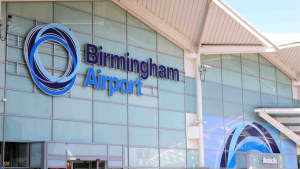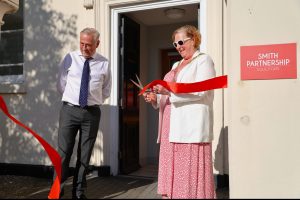Sustainability a top priority for 2014 say West Midland SMEs

ALMOST a quarter of West Midlands’ SMEs say sustainability is one of their top three priorities for 2014, reflecting a renewed confidence and a desire to focus on developing their businesses’ in the New Year, according to new research.
However the findings from Lloyds Bank Commercial Banking show that many businesses in the region are still focused on traditional ‘green’ activities, including energy saving and recycling rather than the broader range of sustainable business practices relating, for example, to supply chains and sourcing.
The research also highlights the fact there are still businesses which do not believe there are any benefits to be gained from implementing such practices.
Dave Atkinson, area director SME Banking in the West Midlands, Lloyds Bank Commercial Banking, said: “Businesses in the West Midlands clearly see the benefits of sustainability, and they are carrying out their environmental responsibilities through recycling and being energy efficient.
“But for SMEs, sustainability also means interacting with charities, social enterprises and the community in which they operate; working responsibly within their supply chain and engaging with the next generation, through, for example, apprenticeship schemes.
“Some sectors are really leading the way and other industries across the West Midlands’ economy can follow their example and help underpin the growth we are now seeing with practices that will give us all a sustainable future.”
Most businesses in the West Midlands that have implemented sustainable business practices (86%) believe there are clear benefits in doing do:
* Nearly half (48%) believe it helps reduce their costs
* More than two fifths (41%) cite that it makes a positive contribution to the environment
* Over a quarter (29%) believe it increases their profitability
* Just under a third (31%) feel it makes them a more attractive employer
* Almost a third (31%) believe it makes a positive contribution to the community
Similarly, nine out of 10 West Midlands’ businesses believe that ignoring sustainable business practices can be a risk:
* Almost two fifths (39%) believe it could have a negative impact on their costs
* More than a third (38%) think it may harm their profits
* A similar number (38%) believe it will have an impact on their brand perception
* Just over a third (34%) cite that it could have an impact on compliance with relevant legislation
* Almost a quarter (23%) believe it will impact on their competitive edge
* Just under a third (31%) believe it could mean they are excluded from tender processes
* A quarter (25%) believe it improves their brand perception
However, the research does show that businesses do still tend to focus their efforts on more traditional sustainable business practices, including environmental activities (77%) such as recycling and energy saving. SMEs are less likely to offer a clear business code of conduct (47%); work responsibly within a supply chain (46%); operate an ethical sourcing policy (36%); work with local charities (19%); or offer apprenticeship schemes (30%).
While 45% were unable to clarify how much they spend on sustainable practices, more than a third (35%) of those that could, said the level of investment was below 5% of the company’s turnover.
Looking forward, just over a third (35%) of businesses in the region expect to increase their investment in sustainable business practices over the next five years, while 44% expect their investment to remain flat. Only a small minority (3%) think they will cut back on spending in this area.









